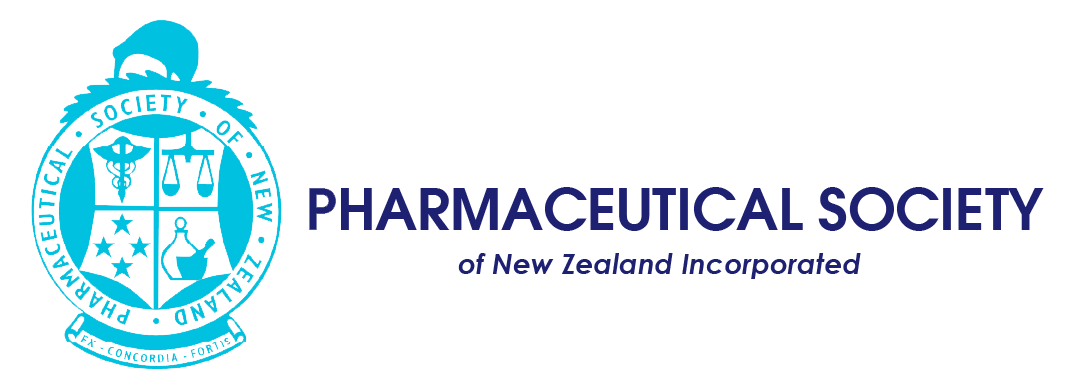Casey Anson interview
The Pharmaceutical Society of New Zealand is proud to showcase some of the diverse and inspiring stories of our members who work in different settings and roles within the pharmacy profession. One of them is Casey Anson, a community pharmacist who works at Queen Street Pharmacy in Upper Hutt, Wellington. Casey shares her passion for pharmacy, her challenges and achievements, and her advice for aspiring pharmacists. Read Casey’s interview and learn more about her journey as a pharmacist below.
PSNZ: Tell us about yourself. How and why you became a pharmacist.
CA: I always knew I wanted to go into healthcare because of my mum. She has dedicated her career to helping care for people and fighting for equity in cancer services. Therefore, I knew I wanted a career where I could interact with patients every day in a meaningful and helpful way. Pharmacy presented as the perfect opportunity to be able to achieve this. I studied in Otago, then completed my intern year and stayed on as a pharmacist at Queen St Pharmacy in Upper Hutt. Every day I get to help people, whether through a clinical intervention or simply offering a sympathetic ear. The gratitude from patients and seeing the impact we have on their lives make being a pharmacist an extremely rewarding career and exactly the kind of role I wanted in healthcare.
PSNZ: The World Pharmacists Day theme this year is "Pharmacy strengthening health systems". How can pharmacists collaborate with other healthcare professionals to strengthen the health system?
CA: We have already seen the amazing impact the pharmacy sector has had on relieving the burden Covid-19 has put on our healthcare system. As the system is still under pressure and winter illnesses have spiked this year, pharmacy has been tasked with even more responsibilities, such as the roll-out of the Minor Ailments Scheme. The pharmacy I work in has been fortunate enough to hire a nurse part-time to help manage the increased workload. This collaboration has been invaluable and has taken the pressure off both us and the local GP clinics around us. Our nurse is able to administer paediatric vaccines, treat wounds, triage patients, and more. This not only takes the workload off us but also means we can treat patients whom we would otherwise have to refer to the doctor. I think this collaboration is essential and should be commonplace in pharmacies across the country.
PSNZ: In your opinion, what are some of the challenges facing pharmacists today?
CA: I think lack of recognition is one of the biggest challenges facing pharmacists today. What do pharmacists do? Why do you have to study for 5 years to count pills? There is a lack of understanding amongst the public about what a pharmacist's role is in the healthcare system and recognition of its importance. There is also a perceived lack of recognition by the government, an example being the classification of community pharmacy as "retail". This had an impact on the conversation around whether masks need to be worn in pharmacies like they do in GP clinics and other healthcare providers. It showed ignorance of the fact that pharmacies are often the first point of call for people who are sick and are an integral part of managing a patient's healthcare. I believe this lack of recognition and understanding is also impacting the number of pharmacy school enrolment rates, as even I had no clue as to what a pharmacist did before stumbling across it as a profession after the completion of first-year health science. Increasing recognition and support for the pharmacy sector is essential for strengthening the pharmacy sector and, in turn, the healthcare system.
PSNZ: We have already seen some changes with the interim Health Plan. What would you like to see implemented in New Zealand's first-ever national Health Plan in 2024?
CA: I would like to see some aspects of the interim Health Plan implemented in the national one, such as placing whÄnau at the heart of the system to improve equity and outcomes. This for me is the absolute priority as it puts the patient at the centre and promotes health care that is individualised to a person's specific needs. This will help empower our communities to strive for the best outcomes for each other.
PSNZ: More recently, the removal of the co-payment $5 prescription fee was celebrated nationwide by pharmacists and communities around the country. What are your aspirations to improve patient and health system outcomes in New Zealand?
CA: The removal of the co-payment was the first step in reducing barriers to accessing health care. Already, I have seen the impact this has had on patients and their whÄnau and how grateful they are for the increased access to their medicines. It has also freed up some of the pharmacists' time so they can have more in-depth health conversations, instead of collecting a government tax. Moving forward I would like to see more programs aimed at increasing public health literacy. We, as pharmacists, do our part, but national programs would help reduce health barriers even further, especially in our vulnerable and minority populations.
Check Casey's "World Pharmacists Day" message to her colleagues below:

